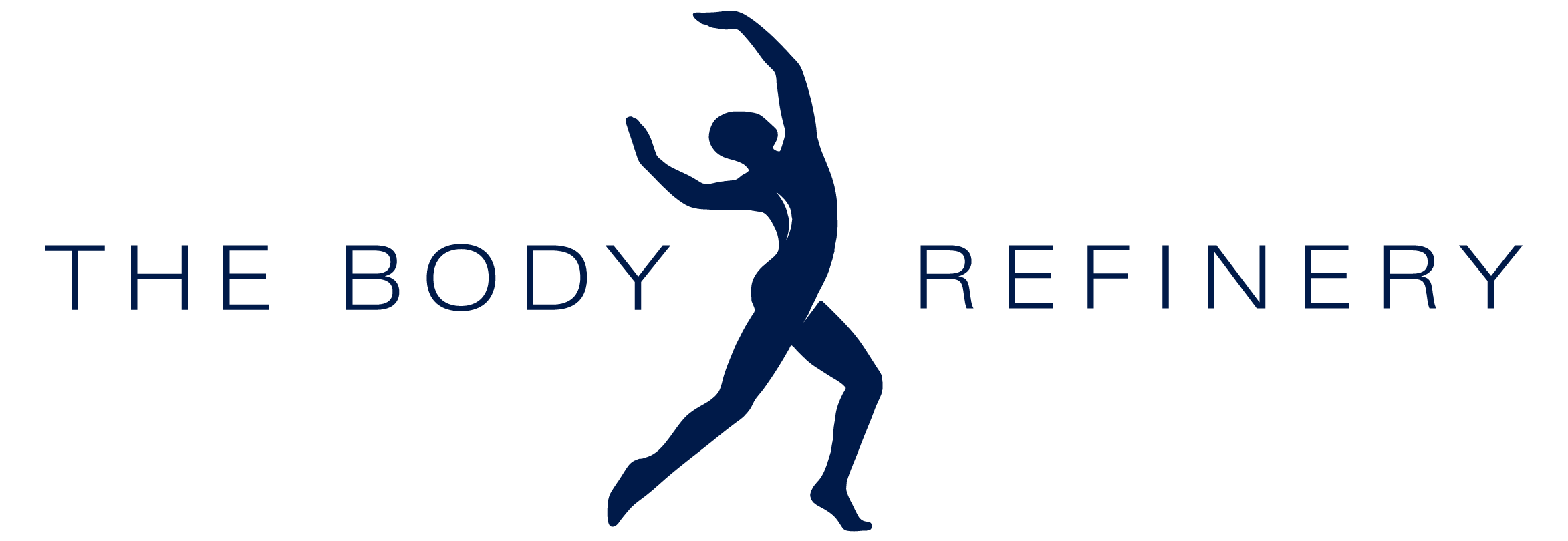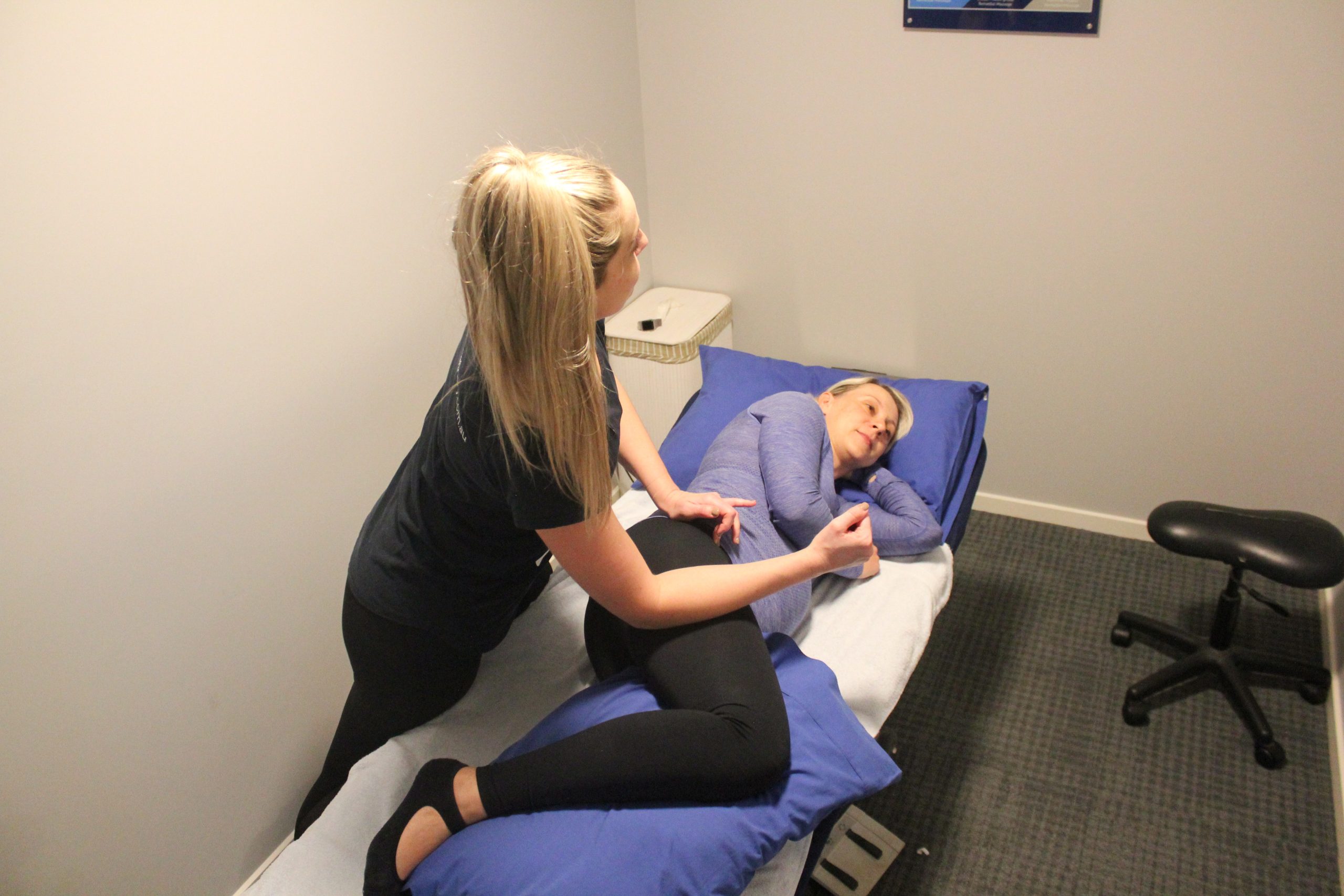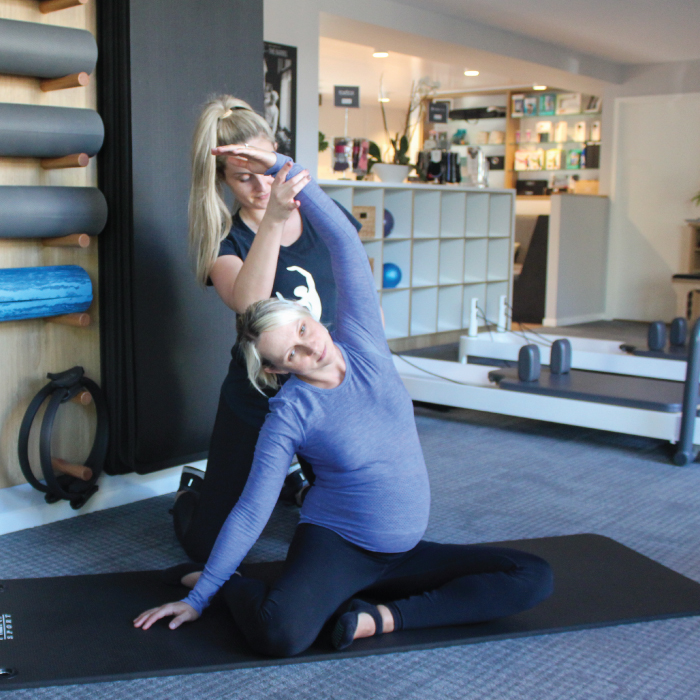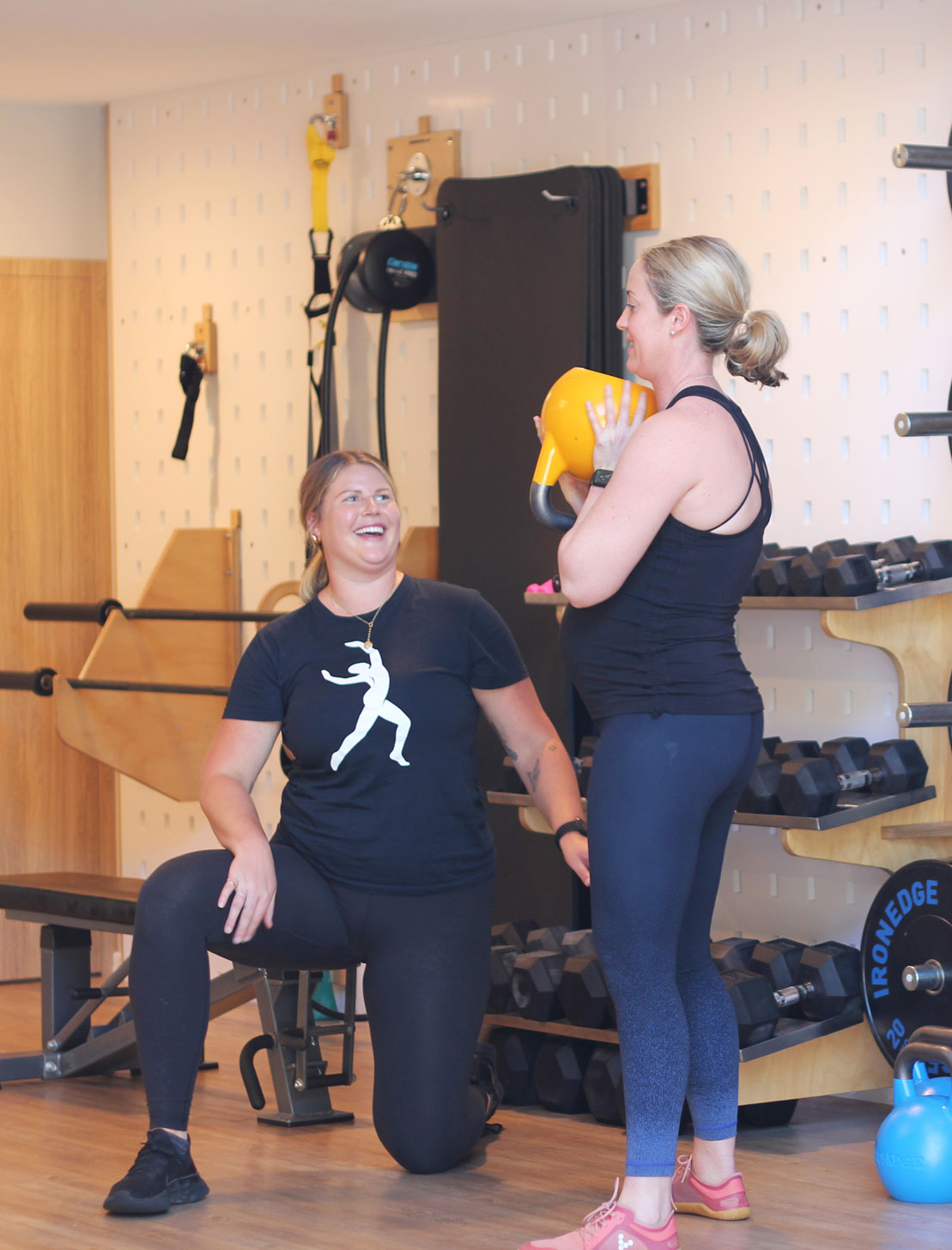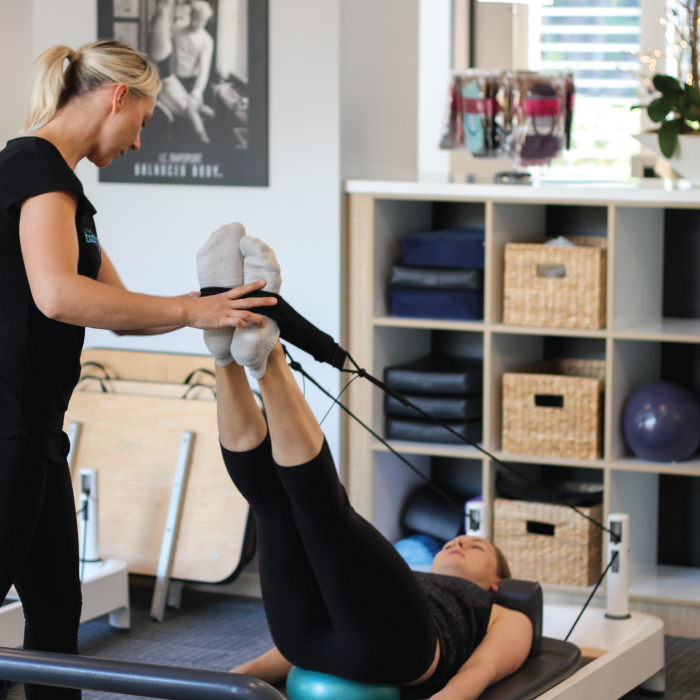After you have given birth, it can take time for your pelvic floor muscles to recover. Pelvic floor concerns such as muscle weakness, prolapse, or urinary incontinence can affect or delay your safe return to exercise and daily activities.
Your Women’s Health Physio can help you postnatally by:
- Evaluating your existing pelvic floor function
- Assessing your abdominal separation and strength
- Identifying risk factors for developing pelvic floor dysfunction
- Setting goals for physical exercise that may be accomplished in a reasonable period of time
Timelines for returning to exercise vary greatly because every woman’s goals, physical condition, pregnancy and delivery experiences are unique.
Your physiotherapist can help you understand where your body is on the recovery journey and what type of exercises could be safer for you, depending on your preferred sports/exercise.
It is widely believed that after a C-section, the new mum doesn’t need a check on pelvic floor muscles or abdomen. Nothing could be further from reality! Your body has still gone through a pregnancy, which is already a risk factor for pelvic floor dysfunction, but most importantly: you have had major abdominal surgery. Hence, as with any other type of surgery, rehabilitation is always recommended.
Your Women’s Health Physio can help you after your C-section by:
- Assessing your abdominal separation and strength
- Assessing your abdominal scar and providing you with scar massage techniques
- Evaluating your existing pelvic floor function (unless you would prefer not to)
- Identifying risk factors for developing abdominal pain and/or pelvic floor dysfunction
- Setting goals for physical exercise that may be accomplished in a reasonable period of time
Timelines for returning to exercise vary greatly because every woman’s goals, physical condition, pregnancy, and delivery experiences are unique.
Your physiotherapist can help you understand where your body is on the recovery journey and what type of exercises could be safer for you, depending on your preferred sports/exercise.
For expert advice and guidance during your pregnancy and to give your body the best chance of preparation and recovery, book your appointment with our Women’s Health Physiotherapist today.
